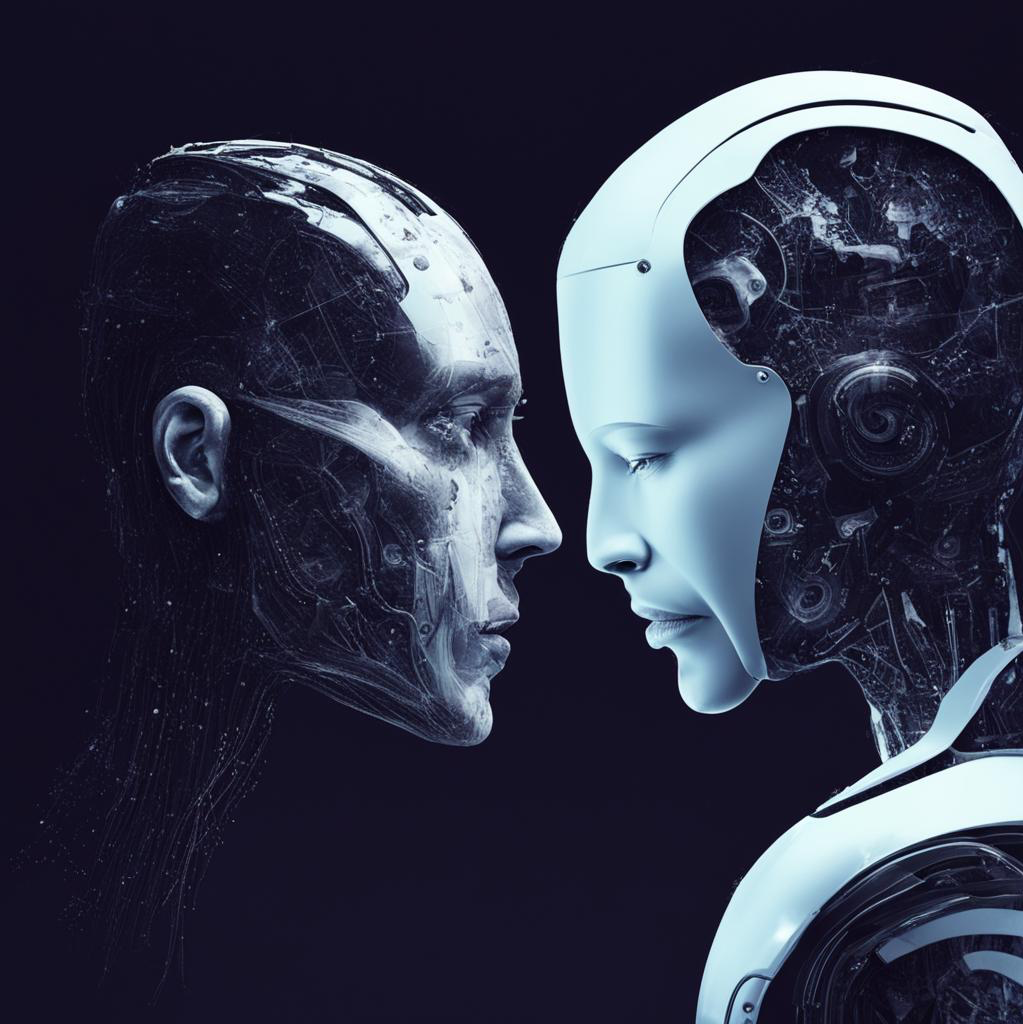Welcome to the thrilling world of open world games, where vast landscapes and endless possibilities await! But what truly brings these immersive virtual realms to life? It’s none other than our trusty companions in the digital landscape – AI NPCs (Non-Player Characters). These intriguing entities have come a long way from their humble beginnings, evolving into complex beings that can think, feel, and interact with players in ways we never thought possible.
We will delve into the exciting advancements in AI technology and explore how it has revolutionized the use of NPCs in popular open world games. We’ll also discuss the impact of these AI-powered characters on gameplay experiences and touch upon some ethical concerns surrounding their development. We’ll gaze into our crystal ball to predict what lies ahead for AI NPCs in the ever-evolving realm of gaming. So buckle up gamers, because things are about to get seriously futuristic!
The Advancements in AI Technology
The world of artificial intelligence (AI) has come a long way in recent years, and its advancements have had a significant impact on various industries. One area where AI technology has shown remarkable progress is in the development of intelligent non-player characters (NPCs) for open-world games.
Gone are the days when NPCs were simply programmed to follow pre-determined paths or engage in scripted interactions with players. Thanks to advancements in AI algorithms and machine learning techniques, developers now have the ability to create NPCs that can think, learn, and adapt their behaviors based on player actions.
These sophisticated AI systems allow NPCs to possess more realistic personalities and make believable decisions within the game world. They can analyze their surroundings, respond intelligently to changing circumstances, and even interact with other virtual characters in dynamic ways.
AI-powered NPCs are capable of learning from player behavior over time. This means that as you play through an open-world game multiple times or make different choices during gameplay, the NPC’s responses will evolve accordingly. It creates a sense of depth and realism that enhances immersion and overall gameplay experience.
One notable example of this advancement is seen in Rockstar Games’ “Red Dead Redemption 2.” The game features an intricate AI system that governs how each NPC behaves based on factors such as time of day, weather conditions, player reputation, and previous interactions. As a result, every encounter with an NPC feels unique and responsive.
Exciting these advancements may be for gamers looking for immersive experiences, there are also ethical concerns surrounding the use of advanced AI technology in games. For instance,
there is potential for unintended consequences if developers do not carefully consider how these intelligent NPCs might influence players psychologically or emotionally.

The Use of AI NPCs in Popular Open World Games
AI NPCs have become a staple in popular open world games, enhancing the immersive experience for players. These virtual characters are no longer just mindless drones wandering aimlessly; they now possess intelligence and behaviors that mimic real humans. In games like “Red Dead Redemption 2” and “The Witcher 3: Wild Hunt,” AI NPCs add depth to the game world by reacting dynamically to the player’s actions.
In these vast open worlds, AI NPCs serve various purposes. They can act as quest givers, providing players with missions and objectives to complete. They may also populate towns and cities, going about their daily routines, creating a sense of life within the game. Some AI NPCs even engage in meaningful conversations with players, offering valuable information or side quests.
The use of AI NPCs not only adds realism but also affects gameplay. Players must consider how their actions will be perceived by these virtual characters. Will stealing from an NPC result in them becoming hostile? Will helping someone earn their trust? These interactions create a dynamic environment where choices matter and consequences are felt.
AI NPCs can shape the narrative of open world games. Their reactions to events and the player’s choices can influence storylines and outcomes. This level of agency gives players a sense of control over their own adventure and fosters a deeper connection with the game world.
Ethical concerns arise when considering the development of advanced AI for NPC characters. As technology progresses, it becomes crucial to ensure that these virtual beings are treated ethically within game design principles. Developers must strike a balance between creating realistic experiences while avoiding potential harm or exploitation towards AI entities.
Looking ahead into the future of open world gaming, we can expect even more advancements in AI technology for NPC characters. Machine learning algorithms will continue to evolve, allowing for more complex behaviors and intelligent decision-making by virtual entities.
The Impact of AI NPCs on Gameplay Experience
AI non-player characters (NPCs) have revolutionized the gameplay experience in open world games. Gone are the days when these virtual entities were mere placeholders, following predetermined paths and repeating scripted lines. Thanks to advancements in AI technology, NPCs now possess a level of intelligence and autonomy that adds depth and immersion to the gaming experience.
Interacting with AI NPCs has become more realistic than ever before. These digital characters can recognize player actions, respond dynamically to their environment, and even learn from their interactions. This creates a sense of realism that draws players deeper into the game world.
AI NPCs can enhance gameplay by offering meaningful quests or side missions. They provide valuable information, assistance, or even challenge players with unique tasks. This not only adds variety to gameplay but also encourages exploration and discovery within the vast open worlds.
The impact of AI NPCs goes beyond enhancing individual quests or missions; they contribute to building a living and breathing game world. As players traverse through bustling cities or remote villages, they encounter dynamic NPC populations engaged in various activities such as shopping, socializing, working or pursuing personal goals. This bustling atmosphere adds authenticity and makes the game world feel alive.
Interacting with well-developed AI NPCs can evoke emotional responses from players. Engaging conversations filled with witty banter or heartfelt moments create memorable experiences that resonate long after turning off the console.
Beneficial AI NPCs may be for gameplay experience enhancement, there are ethical concerns associated with their development as well. The potential for misuse of this advanced technology raises questions about privacy rights and data security.
It is undeniable that AI NPCs have had a profound impact on open world games’ gameplay experience! Their improved intelligence brings realism while fostering engagement between players and virtual characters! With ongoing advancements in artificial intelligence technology, we can expect even greater developments in how these intelligent entities interact within our favorite game worlds!
Ethical Concerns
As we delve deeper into the realm of AI NPCs in open world games, it is crucial to address the ethical concerns that arise alongside this innovative technology. One major concern revolves around the potential for AI NPCs to mimic human behavior and emotions to such an extent that players may form emotional connections with them. This raises questions about the ethical implications of creating virtual beings that can be manipulated or discarded at will.
Another key concern is related to privacy and surveillance. With advanced AI capabilities, NPCs could potentially collect extensive amounts of data on player behaviors, preferences, and even personal information. The question then arises: who has access to this data? And how can it be used ethically?
There are concerns regarding representation and bias within AI NPC systems. If these systems are not carefully designed and monitored, they run the risk of perpetuating harmful stereotypes or discriminatory practices. It becomes imperative for developers to ensure inclusivity and diversity within their AI algorithms.
There is a fear that as AI NPCs become more intelligent and autonomous, they may start exhibiting unpredictable or undesirable behavior. This raises questions about accountability – if an NPC causes harm or engages in unethical actions within a game world, who should take responsibility?
There is a broader ethical dilemma surrounding the impact of advanced AI technology on real-world employment opportunities. As more tasks traditionally performed by humans are automated through sophisticated NPCs, it begs the question: what happens to those whose livelihoods depend on those roles?
These ethical concerns highlight the need for careful consideration when integrating AI NPCs into open world games. Developers must prioritize transparency in their processes while also addressing issues such as consent in data collection and ensuring fair representation across diverse communities.
The future lies in finding a balance between harnessing technological advancements while upholding ethical standards – only then can we truly embrace the potential benefits offered by AI NPCs in open world gaming experiences!
Predictions for the Future of AI NPCs in Open World Games
As technology continues to advance at an astonishing pace, it is inevitable that artificial intelligence will play a larger role in open world games. The possibilities are truly exciting and endless! In the near future, we can expect AI NPCs to become even more realistic and immersive.
Imagine strolling through a bustling city filled with lifelike characters who respond intelligently to your actions and dialogue choices. These AI NPCs will have their own unique personalities, emotions, and motivations. They won’t just be mindless drones following prescribed paths; they will adapt and learn from their experiences.
These advanced AI NPCs will possess complex decision-making abilities. They could analyze situations dynamically, considering various factors such as time of day, weather conditions, or even recent events within the game world. This would make interactions with them feel incredibly organic and unpredictable!
In addition to their improved behavior, future AI NPCs may also feature enhanced visual fidelity. Imagine characters with facial expressions that accurately reflect their mood or body language that conveys subtle nuances of emotion. This level of detail would greatly enhance immersion and make the game world feel alive.
While these advancements sound promising for open world games’ future development, there are ethical concerns that need careful consideration too! Issues such as data privacy and potential biases must be addressed before fully embracing advanced AI technology in gaming.
Balancing Realism and Player Enjoyment
Balancing realism and player enjoyment is the key to harnessing the full potential of AI NPCs in open world games. As technology continues to advance, we can expect even more sophisticated AI systems that bring these virtual characters to life like never before.
It’s important for game developers and designers to remain mindful of ethical concerns surrounding AI NPCs. Striking a balance between creating realistic and immersive experiences while respecting player boundaries is crucial. Ensuring that AI NPCs behave in a way that feels authentic without crossing into intrusive or exploitative territory will be an ongoing challenge.
The future of AI NPCs holds incredible promise for enhancing the gameplay experience in open world games. With advancements in artificial intelligence technology, we can look forward to richly populated virtual worlds filled with intelligent non-player characters who respond dynamically to players’ actions and create truly immersive experiences.
As players continue to demand greater immersion and complexity from their gaming experiences, it falls upon developers to push the boundaries of what’s possible within ethical limits. By striking this delicate balance between realism and player enjoyment, AI NPCs have the potential not only to revolutionize open world games but also transform how we interact with virtual worlds as a whole.


